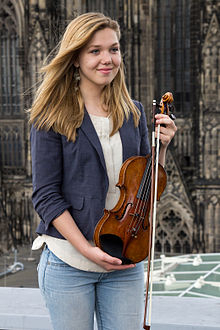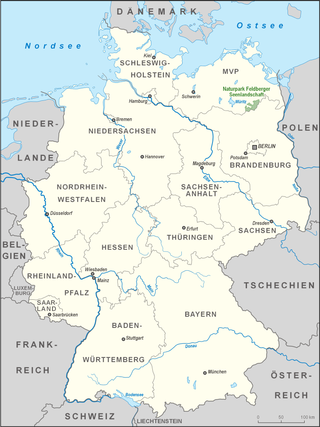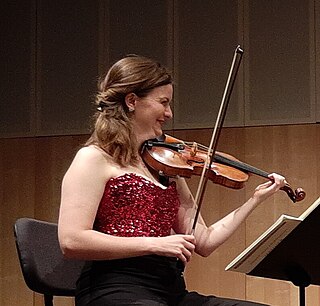Judith Stapf | |
|---|---|
 Stapf in 2014 | |
| Background information | |
| Born | 31 May 1997 Rheinbach, Nordrhein-Westfalen, Germany |
| Genres | Classical |
| Instrument | Violin |
Judith Stapf (born 31 May 1997) is a German classical violinist.
Judith Stapf | |
|---|---|
 Stapf in 2014 | |
| Background information | |
| Born | 31 May 1997 Rheinbach, Nordrhein-Westfalen, Germany |
| Genres | Classical |
| Instrument | Violin |
Judith Stapf (born 31 May 1997) is a German classical violinist.

Born in Rheinbach, Nordrhein-Westfalen, Stapf received violin lessons at the age of three. At a children's concert in the Frankfurter Alte Oper she had her first concert appearance at the age of eight. She had her first appearances as a soloist at the age of ten in the Cologne Basilica St. Maria im Kapitol and in the Kölner Philharmonie, afterwards also at the Schleswig-Holstein Musik Festival and the Festspiele Mecklenburg-Vorpommern .
After having been taught privately or as part of international master classes until 2008, she attended the Hochschule für Musik und Tanz Köln from 2008 as a participant of the Pre-College Cologne. She regularly studied at this university from 2013 to 2018.
In spring 2014 the Westdeutscher Rundfunk nominated her as a German participant in the Eurovision Young Musicians 2014 competition. She performed there in the finale Dmitri Shostakovich's Burleske aus op. 77 with the WDR Sinfonieorchester Köln.
In 2016 she appeared as a guest in the concert series "Junge Elite" at the Festspiele Mecklenburg-Vorpommern. [1]
From 2016 to 2018 she belonged to the first generation of students at the newly founded Barenboim–Said Akademie in Berlin.
Since the winter semester 2018/2019 she has been studying in the Master's programme at the Universität der Künste Berlin.
Stapf plays a violin by Andrea Guarneri. [2]
At the age of ten Stapf came across the title melody of Spielberg's film Schindler's List, a violin piece interpreted by Itzhak Perlman by the composer John Williams. Out of interest for the background of the play she made contact with the Holocaust-survivor Jerzy Gross in 2008. The former violinist belonged to the so-called "Schindler's juden", who had worked for the entrepreneur Oskar Schindler and were saved from murder in the extermination camp. The exchange of several years between Stapf and Gross led to the book Spiel mir das Lied vom Leben - Judith und der Junge von Schindlers Liste by Angela Krumpen in 2011. [3] For the Westdeutscher Rundfunk Martin Buchholz documented a common journey to Poland to stations of Gross's suffering. [4] Since 19 November 2015, an Internet website has been in existence that focuses on the encounter between Judith Stapf and Jerzy Gross. [5] In January 2018 she played "Nigun" by Ernest Bloch in the German Bundestag in the commemoration hour for the victims of National Socialism. [6] [7]

Mecklenburg-Vorpommern, also known by its anglicized name Mecklenburg–Western Pomerania, is a state in the north-east of Germany. Of the country's sixteen states, Mecklenburg-Vorpommern ranks 14th in population; it covers an area of 23,300 km2 (9,000 sq mi), making it the sixth largest German state in area; and it is 16th in population density. Schwerin is the state capital and Rostock is the largest city. Other major cities include Neubrandenburg, Stralsund, Greifswald, Wismar, and Güstrow. It was named after the two regions of Mecklenburg and Fore Pomerania.

Ireen Sheer is a German-English singer. She had her first major hit in 1970 with Hey Pleasure Man. She had a top five hit on the German singles chart with "Goodbye Mama" in 1973. She went on to finish fourth at the Eurovision Song Contest 1974 representing Luxembourg, sixth at the Eurovision Song Contest 1978 representing Germany, and thirteenth at the Eurovision Song Contest 1985 representing Luxembourg again.

Volker Lechtenbrink was a German actor on stage, in film and television, a singer-songwriter, dubbing artist, stage director and theatre manager. He played in the anti-war movie The Bridge in 1959 at age 14. He appeared in popular television series including Der Kommissar, Der Alte and Tatort. Lechtenbrink was stage director at the Ernst Deutsch Theater in Hamburg, and intendant of the Bad Hersfelder Festspiele.

The Feldberg Lake District Nature Park lies in the southeast of the German state of Mecklenburg-Vorpommern in the district of Mecklenburgische Seenplatte. A large part of the nature park lies within the municipality of the same name, the Feldberger Seenlandschaft. In addition the municipalities of Wokuhl-Dabelow, Grünow, Carpin, Godendorf and parts of the towns of Woldegk and Neustrelitz fall within the nature park. The western end of the park is also a part of Müritz National Park.

Veronika Eberle is a German violinist.
Friedrich Domin was a German film actor. He appeared in more than 60 films between 1939 and 1961. He was born in Beuthen, Germany and died in Munich, West Germany.
Enno Poppe is a German composer and conductor of classical music, and an academic teacher.
The Axel-Springer-Preis is an annually awarded prize. The Award is given to young journalists in the categories print, TV, radio, and online journalism due to the decisions of the Axel-Springer-Akademie.
Michael Buddrus is a German historian.

Peter Hamm was a German poet, author, journalist, editor, and literary critic. He wrote several documentaries, including ones about Ingeborg Bachmann and Peter Handke. He wrote for the German weekly newspapers Der Spiegel and Die Zeit, among others. From 1964 to 2002, Hamm worked as contributing editor for culture for the broadcaster Bayerischer Rundfunk. He was also a jury member of literary prizes, and critic for a regular literary club of the Swiss television company Schweizer Fernsehen.

Philipp Amthor is a German politician of the Christian Democratic Union (CDU) who has been a member of the Bundestag since the 2017 German federal election. From 2018 to 2020, he worked as a lobbyist for the now inactive IT-company Augustus Intelligence.

Ulrike Krumbiegel is a German actress. She has performed in more than 100 film and TV productions. In her early career, she performed in East German cinema and theatre. After the re-unification of Germany, her career continued with appearances in crime series such as Tatort, and the ZDF series SOKO München. She has also continued to appear in the theatre, featuring in plays by Berthold Brecht, Henrik Ibsen and William Shakespeare.
The Ludwig Schuster Quartet was a string quartet from Halle (Saale) active in the 1950s and 1960s. It was named after first violin Ludwig Schuster.
Vera Pearl Little-Augustithis was an American operatic contralto and mezzo-soprano who belonged to the ensemble of the Deutsche Oper Berlin for more than four decades. She performed each of the important mezzo-soprano roles of the repertoire, appearing at major international opera houses and festivals. She took part in world premieres of operas by Hans Werner Henze, in 1965 Der junge Lord in Berlin and in 1966 Die Bassariden at the Salzburg Festival.
The Fauré Quartet is a German piano quartet, named after Gabriel Fauré. Founded in 1995, they have performed internationally and recorded, including works written for them by composers such as Volker David Kirchner and Toshio Hosokawa.
Matthias Rácz is a German bassoonist.
Andre Asriel was an Austrian-German composer.
Pauline Sachse is a German violist, chamber musician, and professor at the Hochschule für Musik und Theather Felix Mendelssohn Bartholdy.
Lenka Matějáková is a Czech violinist.
Olena Mykolajiwna Tokar is a Ukrainian operatic lyric soprano. She has been a member of the Oper Leipzig since 2010, and has appeared in Europe including at the Verbier Festival as Puccini's Mimì, at the Vilnius Opera as Gounod's Marguerite, as Verdi's La traviata at the Trondheim Opera, and as Gounod's Juliette at the Grange Park Opera. She recorded a collection of art songs by women composers including Clara Schumann and Vítězslava Kaprálová, with pianist Igor Gryshyn.